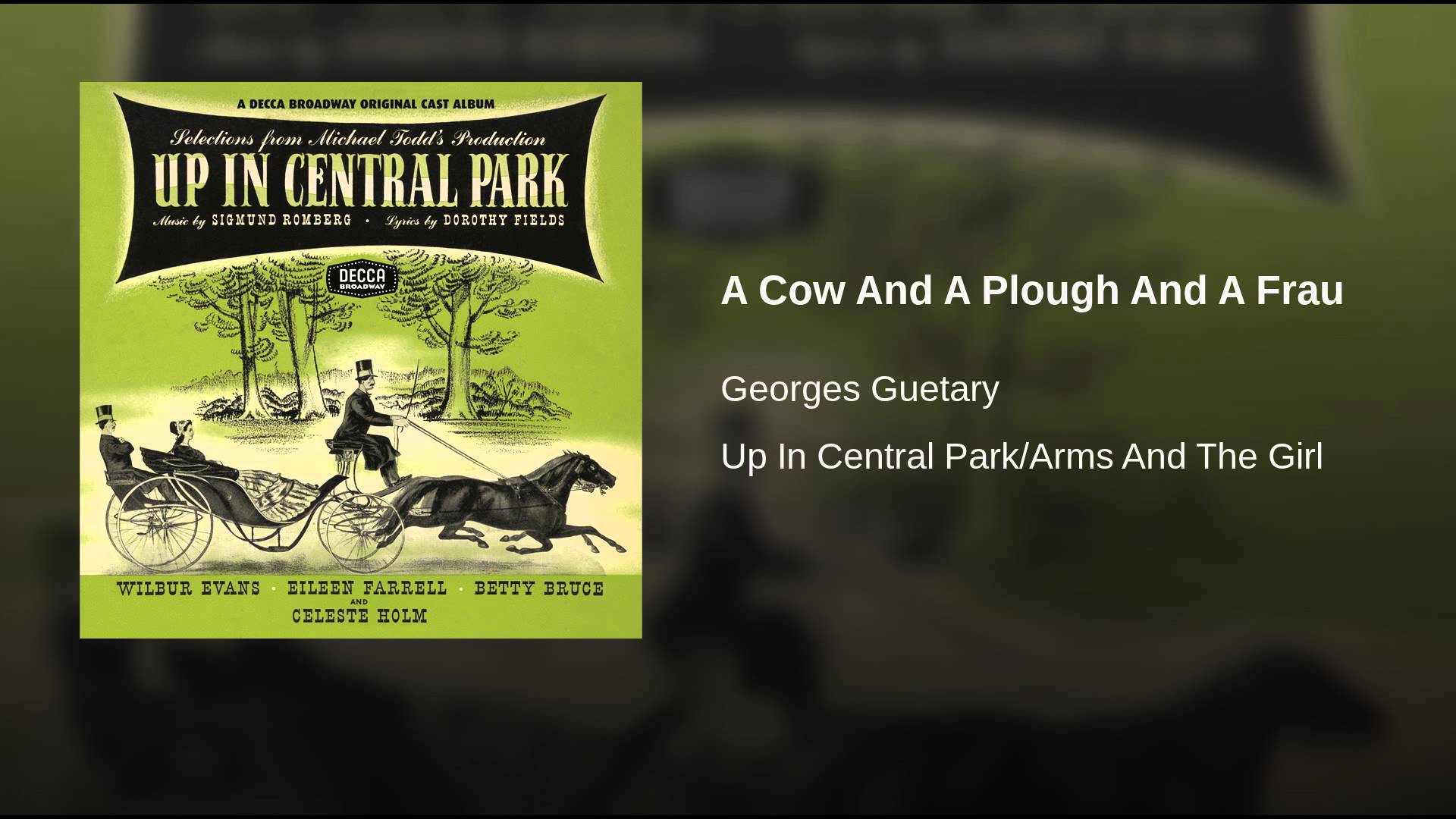On the Dorothy Fields’ website, “A Cow and a Plough and a Frau” is described as the low point of Fields’ career as a lyricist, which naturally sent me scurrying to find a recording. Luckily the original cast album CD of Arms and the Girl, from which the song comes, paired with Up in Central Park goes in and out of print with regularity, and isn’t hard to find. The show itself is little remembered. It’s one of at least five Broadway musicals about the American Revolution (the most recent being Hamilton of course, the earliest being Rodgers and Hart’s Dearest Enemy). But until I found the CD, that was the extent of my knowledge. Not a lot of the score is memorable, but, somewhat to my surprise, I took immediate exception to the characterization I had read of “A Cow and…” I will say that it may be the most unlikely lyric that Fields ever wrote, and my guess is that if you played it for a hundred musical theater geeks who had never heard it, not one of them would be able to guess its authorship correctly. However, that doesn’t make it a bad song. It just makes the wonderfully urbane Dorothy Fields a more flexible lyricist than one might have guessed. I actually think it’s an adorable song, unique among Field’s lyrics for it’s ability to combine clever craftsmanship with a genuine bucolic feel. There’s something of Oscar Hammerstein about the sentiment, and something of Lorenz Hart about some of the wordplay.
I still don’t know much about Arms and the Girl, but the character singing the song is a Hessian who is beginning to see that he’s fighting on the wrong side – it would be better to be a young immigrant in a new country than a soldier-for-hire working for a troubled and troubling British Empire in a foreign land. He muses on it all, from the point-of-view of a European farmer in the late 1700s. He expresses himself with an ever-clarifying point of view, gaining confidence as he goes, and that makes this a very classical and theatrical “I Want” song. He is charming. The song is charming. The attitude is old-fashioned in a way that we would never dream of in the 21st Century, modestly gallant and graceful, but iron-willed. True, it casts the role of a wife in a way that we don’t find acceptable today, but the song wasn’t written today, and the show was set over two hundred years ago. Morton Gould’s tune isn’t classically catchy, but it has craft, and it gets under your skin if you let it. And Fields’ lyric, other opinions to the contrary notwithstanding, is, I think, kind of inspired. Interestingly, its content is almost identical to “When I First Came to This Land,” a Pennsylvania Dutch folk song that wasn’t translated into English until 1957, well after Arms and the Girl had come and gone. Great minds…



0 Comments